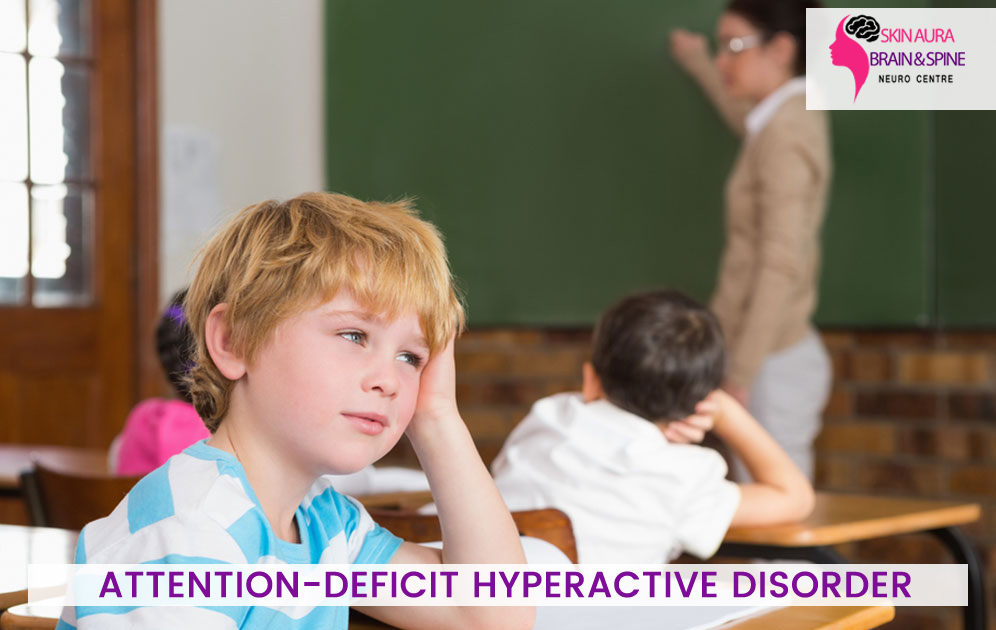It is actually a brain neurological disorder where a person is not able to focus their attention for a longer period of time on one thing which makes them hyperactive and impulsive. They will lack persistence, will not be organized and careless all the time with constant restlessness which can cause a hindrance in their everyday work and daily routines.
CAUSES:
According to brain imaging studies – the youths with ADHD delays brain maturation by about three years and it causes a delayed in the most pronounced brain region such as in thinking, paying attention and planning. The brain structure which is important for proper communication between the two halves of the brain will have an abnormal growth pattern. Various other causes are:
- Genetics
- Environmental factors
- Brain injuries
- Lead
- Imbalance in the brain neurotransmitters of the brain
RISK FACTORS:
- Low birth weight babies
- Children
- Premature babies
- Epilepsy
- Brain damage
SYMPTOMS:
- Difficulty in focusing attention on anything.
- Missing details and making careless mistakes in school, outdoor and during daily work.
- Constantly talking at inappropriate times.
- They will have difficulty in organizing daily tasks.
- School going kids will have difficulty in doing homework.
- They will not be able to follow any instructions given at school, home or workplace.
- They will be easily distracted all the times.
- They will forget things easily.
- Difficulty in memorizing things.
- They will be constantly moving around, hyperactive from one place to another.
- They will talk too much without any realization.
- They will have a problem with finishing tasks.
- They will daydream a lot.
- They will not able to sit for a longer time at the same place.
- They will bounce and squirms while sitting.
- There will be constant boredom in adults
- Anxiety and low self-esteem
- They will procrastinate a lot.
- They will get easily frustrated
- They will have constant mood swings.
DIAGNOSIS:
- Diagnosis will be done by the child psychiatrist and pediatrician based on the symptoms mentioned above especially when these symptoms cause hindrances in living the normal tasks and activities of everyday life.
- Quantitative electroencephalography
- Diagnosis of ADHD can be confirmed by ruling out anxiety, depression and other mental disorders.
According to the DSM criteria, there are three sub-types of ADHD:
- ADHD PREDOMINANTLY INATTENTIVE TYPE
- ADHD PREDOMINANTLY HYPERACTIVE IMPULSIVE TYPE
- ADHD COMBINED TYPE.
TREATMENT:
MEDICATIONS:
- Medications called stimulants can help in increasing the attention span by dexmethylphenidate, dextroamphetamine.
- Nonstimulants medications are prescribed for people older than 6 include clonidine, atomoxetine.
- Dietary supplements include omega 3s has a benefit effect.
Behavior MODIFICATIONS:
It is actually the first line treatment in pre-school children. It helps in modifying the behavior of the child as well as the parents by using cognitive behavior therapy, neurofeedback, and parent management training. It strengthens the positive behavior and eliminates unwanted and bad behavior by strengthening their existing behavior
Counseling/PSYCHOTHERAPIST:
It is done by any professional psychologist by interacting with the patient and the parents directly by understanding the root cause of their behavior by teaching them how to handle their emotions and frustration.
PARENT TRAINING AND EDUCATION PROGRAMMES:
It helps in learning new effective ways of talking to your child, how to handle their child by improving their behavior and attention.
SOCIAL SKILLS TRAINING:
It helps in teaching the children how to behave in social situations by teaching them how to alter their behavior and how it affects others.
